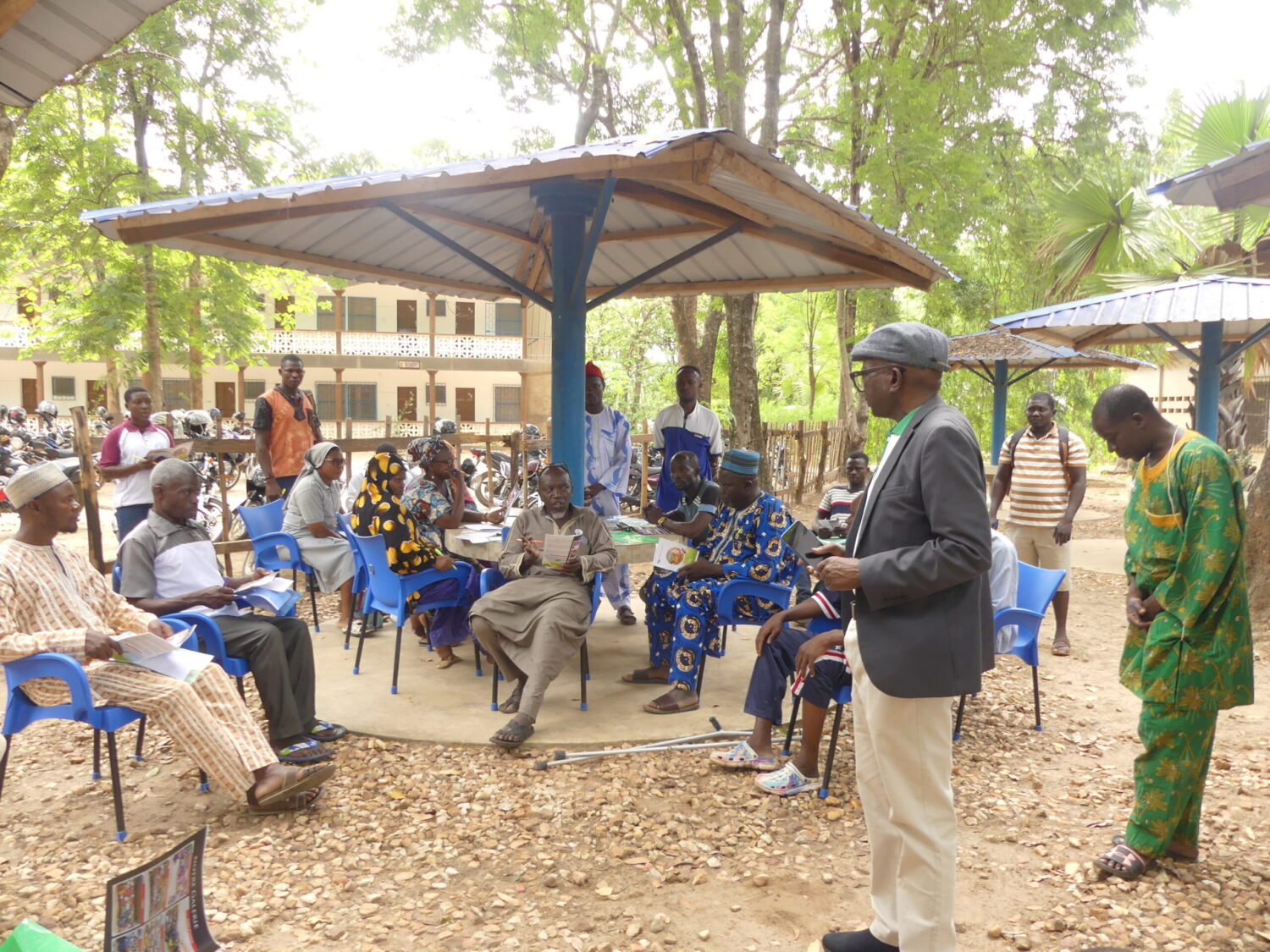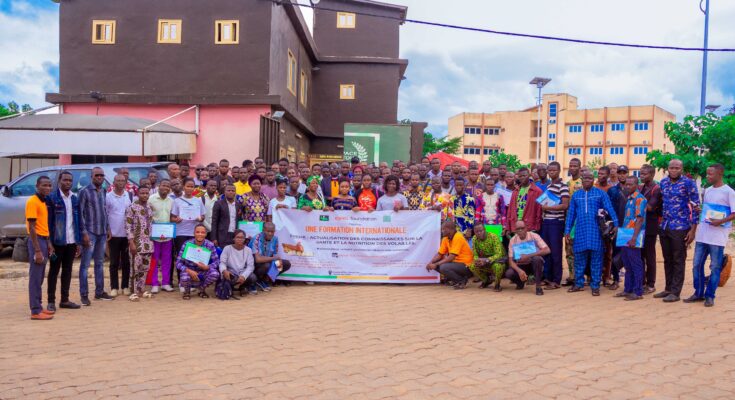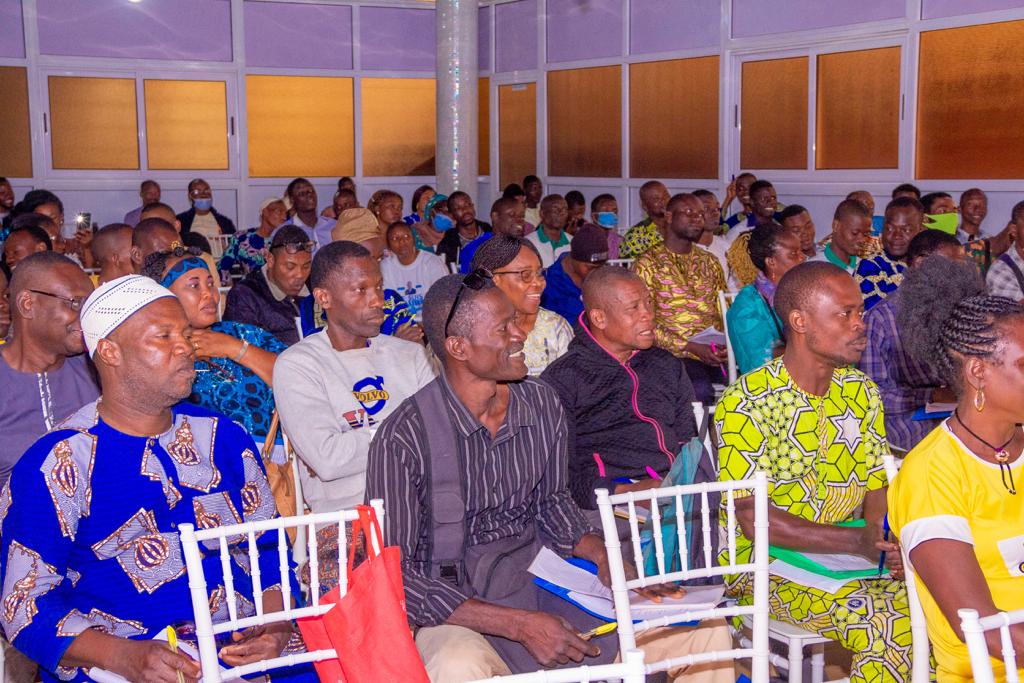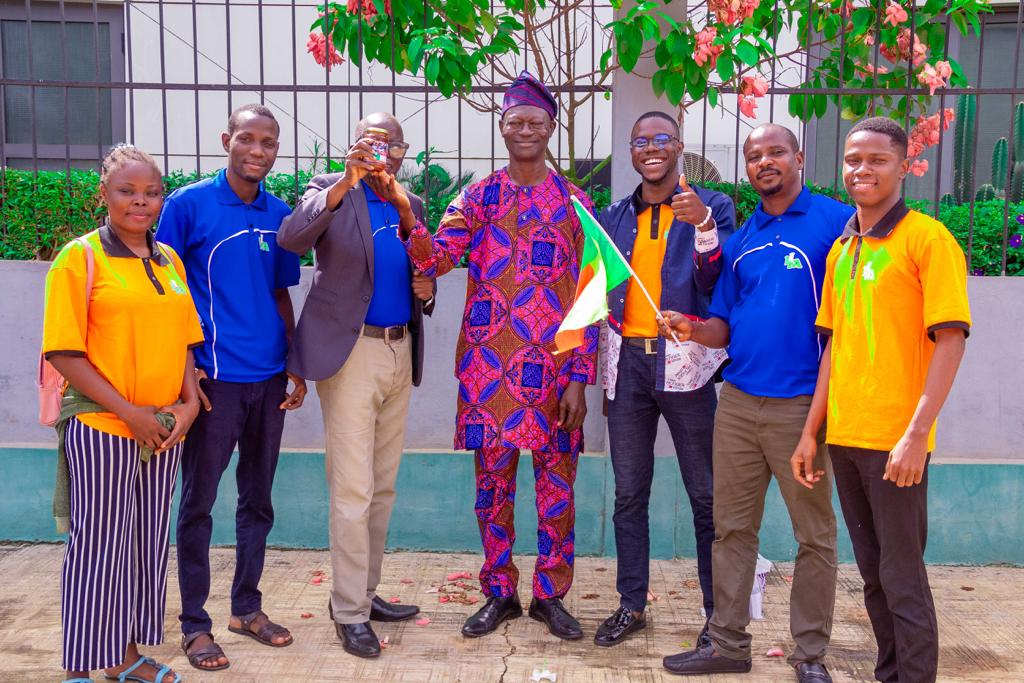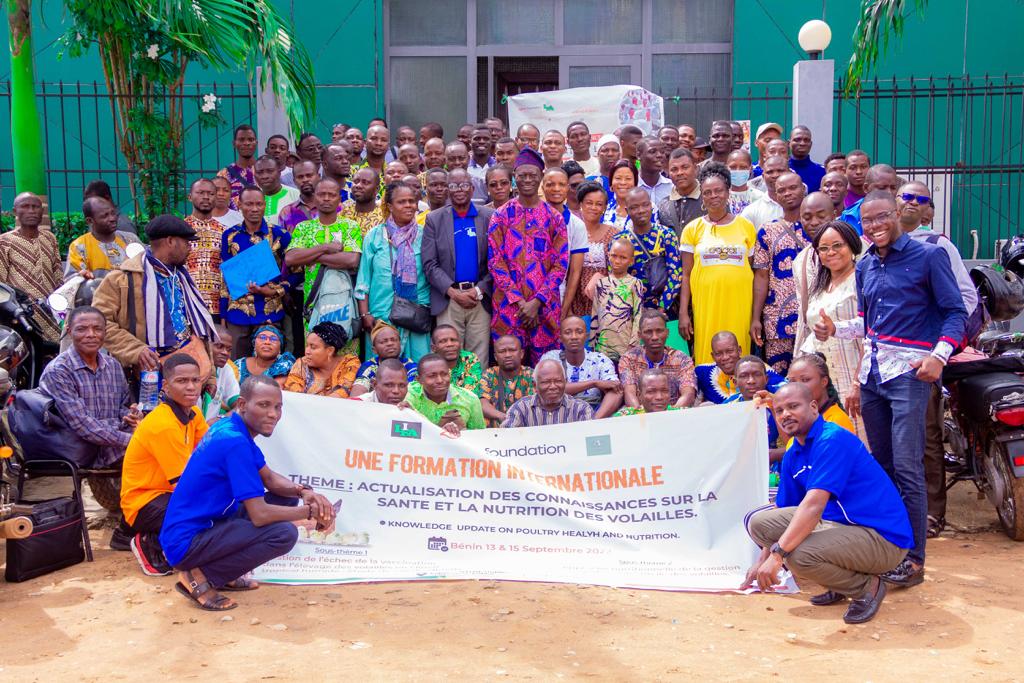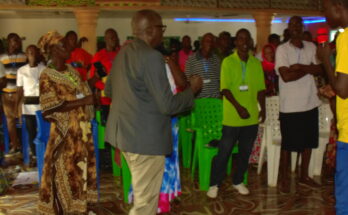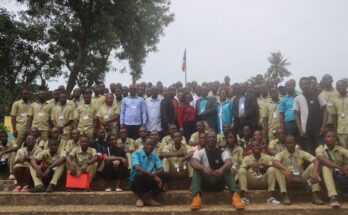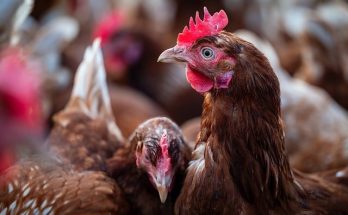An international training session on “Updating Knowledge on Poultry Health and Nutrition” was delivered by the Livestock Industry Foundation for Africa (LIFA) in the Benin Republic with the assistance of a bilingual consultant (AniskLanguage). The Zoetis Foundation provided funding for the training course on poultry nutrition and health. Training was conducted in Abomey Calavi University on September 13, 2022, and on September 15, 2022, it was conducted in Ouidah.
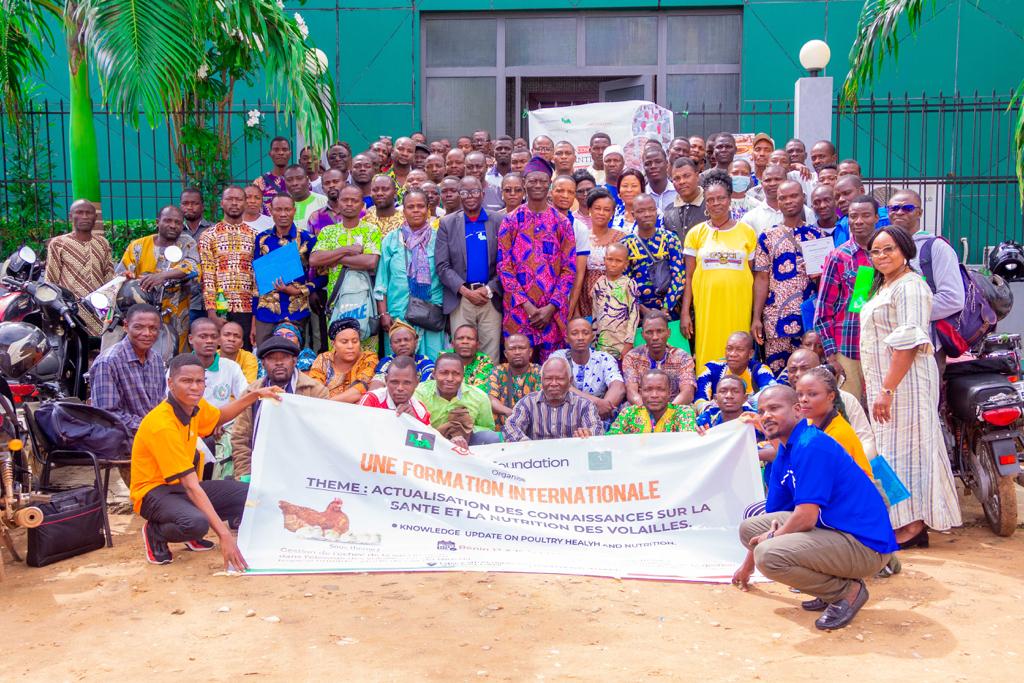
In attendance were poultry farmers, veterinarians, animal scientists, poultry farmers, students of veterinary medicine, and other stakeholders in the poultry industry. 571 people attended the face-to-face training for the poultry health and nutrition program that was held in Benin Republic. An impressive number of people participated in the virtual meeting that LIFA held through its official Facebook page https://fb.watch/gZzeFinjOS/). Veterinarians make up 20.5% of participants, animal scientist make u 10.0%, farmers make up 46.2%, veterinary students make up 5.1%, and the remaining 18.2% are different professions like marketers, retirees, sales reps, etc. 40.1% of participants in the training program are female, and 59.9% are male, at the sites.
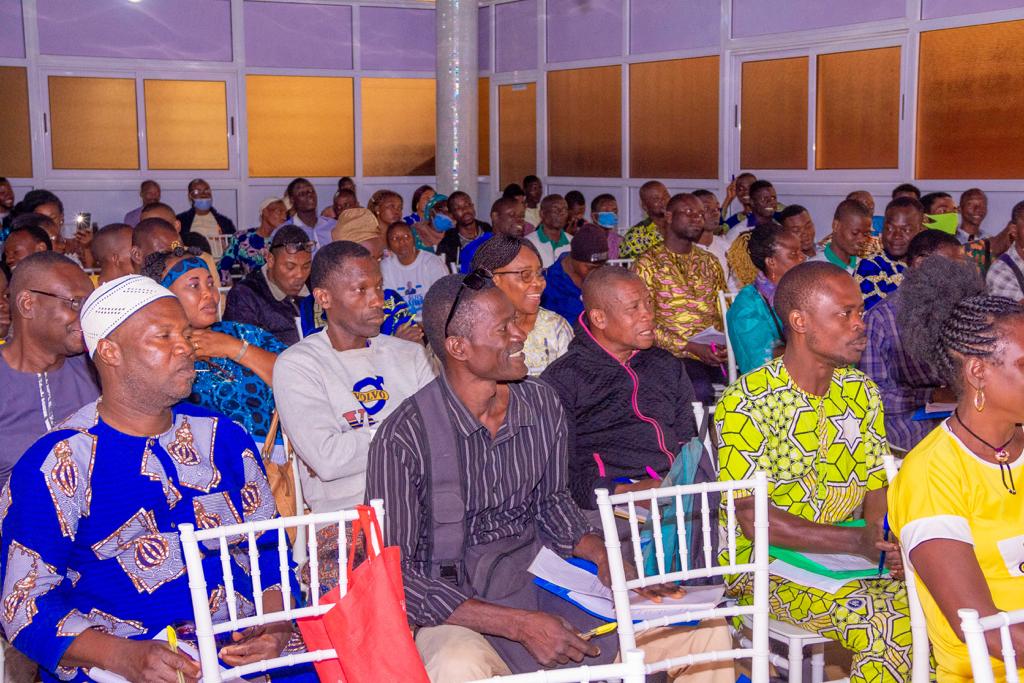
The registration of participants at the two training locations officially kicked off the training session at 9:30 am. The training curriculum focuses on the significant difficulties affecting the production of poultry. The Livestock Industry Foundation for Africa’s (LIFA) president, Dr. Stephen Adejoro, welcomes the trainees to the program. In order to help their poultry businesses, other dignitaries seated at the high table encourage the attendees to attentively listen to the lecturers. In his welcoming speech, Dr. Adejoro, the president of LIFA, expressed gratitude for the Zoetis foundation’s support as well as approval for Anisklanguage’s assistance throughout their long-standing cooperation.

Dr. Stephen Adejoro the founder and president of LIFA, discusses with the participants the management of vaccination failure in poultry farms in humid tropical climates: case studies from Nigeria.
He explained to the participants that contaminated feed poses a major threat to the immune system’s integrity when it is consumed by chicks or adult birds, which can result in the emergence of resistance and ongoing vaccination failures.
According to Dr. Adejoro, a favorable environment is necessary for the production of mycotoxins like Aflatoxin, Fuminoxin, and Zearalenone. He outlined the methods to prevent mycotoxin contamination, including the type of grain used, storage conditions, the buildup of dust and organic material inside feed production equipment, and transportation circumstances.
He came to the conclusion that in order to achieve the anticipated growth for the region and provide safe poultry and poultry food products for the region, strategic and preventative application of broad spectrum toxin binders, especially the new generations of Nanotoxin binders, should be approved as a zoo phytosanitory requirement mandatory for the movement of DOC across the borders in the region.


Dr. Patrice Sagbo addressed the second topic, “Nutritional Approach for the Management of Intestinal Health in Poultry.” In his intervention, the doctor addressed several aspects of the intestinal health of poultry, starting with a comparison between modern and traditional poultry farming and their strong and weak points.
He believes that a nutritional balance is needed to best meet the needs of the poultry and promote its growth, and of course, at a lower cost to the poultry farmer. He emphasizes the need for energy, protein, and essential amino acids while taking care to give dietary recommendations necessary for maximum meat (broiler) or egg (layer) production.
Additionally, it emphasizes the various effects of vitamin insufficiency on poultry as well as the significance of vitamin intake, development rate, egg output, and bird size. The doctor concluded by demonstrating the need of prioritizing the quality of the input (raw material), strict adherence to sanitation during meal production, and proper conditioning of chicken food.
During the question-and-answer period, the participants had the chance to express their opinions about the training program. According to feedback from the training program, the majority of participants were grateful for the chance to hold the program in their nation, however others expressed a stronger wish to hold the training frequently.Following the concluding prayer, everyone gathered for a group shot.
LIFA will continue to be proactive in organizing trainings for Livestock Farmers/Stakeholders towards improving the Livestock Industry in Sub-Sahara Africa. We are available for collaborations in areas that may require education, training, advocacy, awareness and policy implementation.
